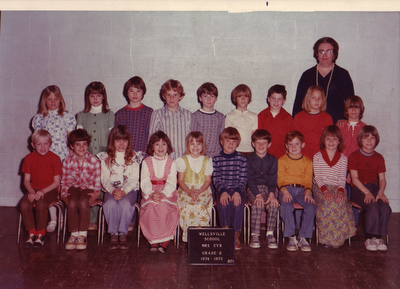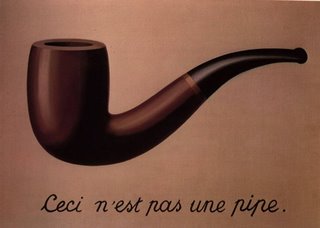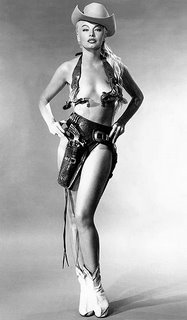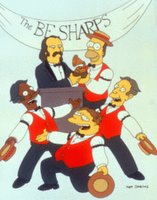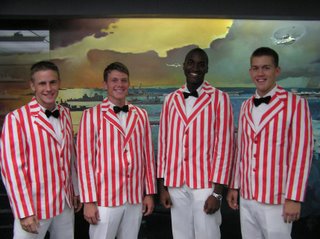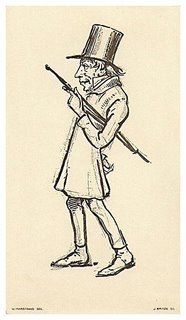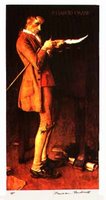
A LIGHTER NOTE
You know how people are always letting you down? How they are always dull and unappreciative and generally come up short in every conceivable way?
Well, I could be the poster-person for people.
I am always letting everyone down.
I let my ex-husband down: "It's not you, it's me."
And my ex-girlfriend: "It's not me, it's you."
And my best friend: "We could go do something fun, but that would cut in to my sulking time."
And my students: "We could talk about your grade, but that's not really what my office hours are for; they're for blogging."
And my dogs: "We could go to the dog park and sniff some new ass, but wouldn't you rather just sniff my old ass right here at home?"
And my neighbors: "I don't know why that refrigerator is still on my porch. The guy said he was coming to get it."
I could make a two-page list of people I've let down just this week. It would run the gamut from my boss to the grocery sacker at Dillons. It would include the janitor who empties the trash in my office: "You know, there's a recycling bin for white office paper." She may just as well have said, "Trees are dying for you people with desk jobs and you can't even walk 20 feet to the recycling bin."
Small let-downs. Big let-downs. A disappointed look in someone's eye is a disappointed look in someone's eye, whether it lasts a millisecond or decades. It's all the same. Experience, In my experience, is just a spectrum of disappointment.
The other day I let my mom down. And I didn't just let her down. I let her down in exactly the same way I did 25 years ago. It's amazing how you think you've grown up and become your own person and in the blink of an eye — blink! — a quarter of a century disappears. And you are a kid again, emotionally naked, at your mother's mercy, locked in her gaze — letting her down.
It all started with a simple question: What happened to your hair?
What do you mean? I say, hardly looking up from the People magazine I'm reading at her kitchen table.
It's shorter here, she says, pulling at my front locks.
I don't know, I say.
And I really don't know. Why would my hair be shorter? I didn't cut it. I didn't get it caught in the car door. I didn't lose a fight with the dogs. I run my fingers through it. Oh, she's right; it is shorter. What the heck? Then I realize, with a clammy, trapped feeling: I must have singed it with a cigarette lighter while I was smoking — the other day on my porch, when I was all wound up about work and puffing away like Bette Davis in "Now, Voyager."
I remember singeing my hair a few times in junior high and high school. Damn adjustable flames. Staring down at a picture of Tom Cruise, I have a speed-of-light flashback to a certain incident in eighth grade. It involved one other girl, two boys, a pint of Southern Comfort, a couple cans of Pepsi and a pack of Kools. Do the math and you get a hangover, a hickey and charred bangs.
I look up from the magazine and see that my mom is having the exact same flashback. We eye each other furtively but say nothing. I bask in silent guilt for a minute; she basks in silent judgment. I am 39 years old and my mom has caught me smoking. Where do we go from here?
What to say?
She certainly didn't say much 25 years ago. She didn't have to. She could just rely on a liquid, wounded stare and an implication that I was breaking her heart. No amount of accusations or recriminations could make me feel worse than that look. She gives it to me now. And it's just as effective. I want to fall to her feet and say, "Please don't hate me. I'll never do it again. Please, Mommy."
But of course I don't. I didn't then and I don't now. This is one of those situations where acknowledging a wrongdoing would only make it worse; it would make the wrongdoing more real, more out in the open, more to be reckoned with. No, this is strictly a don't-ask-don't-tell situation. My childhood was rife with those.
She won't ask what evil I've been up to. And I won't tell. We'll just dance around it clumsily until we achieve an awkward understanding: I won't be a bad girl anymore.
But if I could tell, I'd say this: I am not a smoker. Smoking is for losers. But sometimes I'm a loser, Mom. I smoke when I am incredibly stressed out or sad — when life seems unbearably long — or when I am incredibly happy — when life seems unbearably short. When life seems just right — when it's lifelike — I feel no need to be in control of my own demise, either to hasten or forestall it. Would that make sense to a mom? It's hard for me to judge, because if my kid smoked I'd just beat the living crap out of her.
